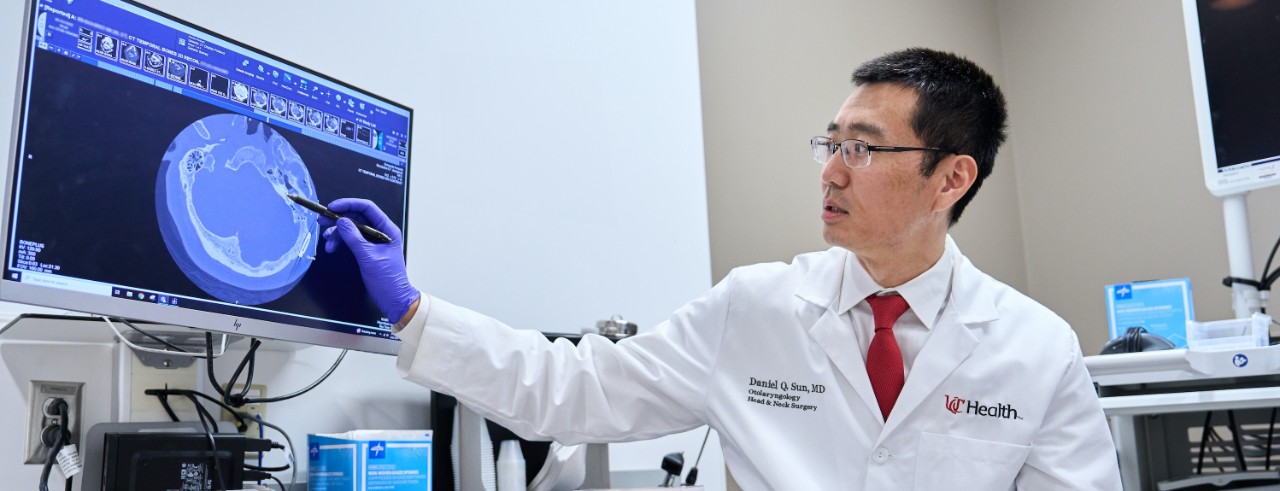
This UC professor's nanoparticle research could help treat hearing loss better
WVXU highlights NIH-funded study
WVXU highlighted the University of Cincinnati's Daniel Sun, who is studying the potential of using magnetic nanoparticles as a delivery system for drugs to reach the inner ear to treat hearing loss.
Aside from often ineffective steroids, there are currently no drugs approved by the Food and Drug Administration to treat hearing loss. While progress is being made on new treatments, getting these medications into the inner ear, where hearing loss occurs, is a major hurdle.
"I like to make the analogy of launching astronauts into space," Sun, MD, the Myles L. Pensak, MD, Endowed Professor in Neurotology and Skull Base Surgery, director of the Division of Neurotology, neurotology fellowship program director and associate professor of otolaryngology in the University of Cincinnati College of Medicine, and a UC Health physician, told WVXU. "We need to not only understand how the spaceship that the astronaut sits in works, but also systematically design the rocket itself so that it can lift the capsule into space. What we work on is designing the rocket that can get these medications into the ear."
Funded by a career development award of just more than $1 million from the National Institutes of Health’s National Institute on Deafness and Other Communication Disorders, Sun and colleagues are studying how magnetic nanoparticles might be used to carry and steer medications to the parts of the ear where the hearing loss is occurring. He says they've been able to design specialized nanoparticles that can penetrate the ear while carrying and delivering some of these newer medications.
"One specific advantage with using these kind of nanoparticles is that they could be administered in a very minimally invasive way," Sun said. "Rather than having to administer these medications through a very delicate surgical procedure in the inner ear that requires general anesthesia and may have risks to further hearing loss, these nanoparticles with the medications they carry could potentially be just injected in a clinic and then penetrate into the inner ear without need for surgery or anesthesia."
Watch or listen to the WVXU story.
Sun also discussed the research with the This Week in Hearing podcast and the Broadcast Retirement Network.
Watch or listen to the This Week in Hearing interview.
Watch the Broadcast Retirement Network segment.
Featured photo at top of Sun pointing to a scan on a monitor. Photo/UC Health.
Sun was initially awarded this grant while at Johns Hopkins University and transferred the grant when he joined the faculty at UC.
Related Stories
Affording college and how students loans are changing
February 5, 2026
Jack Miner, vice provost for enrollment management at the University of Cincinnati, spoke with WVXU's Cincinnati Edition for a segment on college affordability. Miner discussed the recently launched Bearcat Affordability Grant and changes in the federal government's Saving on Valuable Education (SAVE) plan.
Powerful AI can help diagnose substance use disorder
February 5, 2026
A new study by the University of Cincinnati uses a novel artificial intelligence to predict substance use disorder-defining behaviors with up to 83% accuracy.
'Time is brain' again, now for control of intracerebral hemorrhage
February 5, 2026
MedPage Today highlighted research led by the University of Cincinnati's Joseph Broderick that found administering a synthetic protein can reduce bleeding and improve outcomes for certain patients at the highest risk of continued bleeding following a type of stroke called an intracerebral hemorrhage (ICH).
